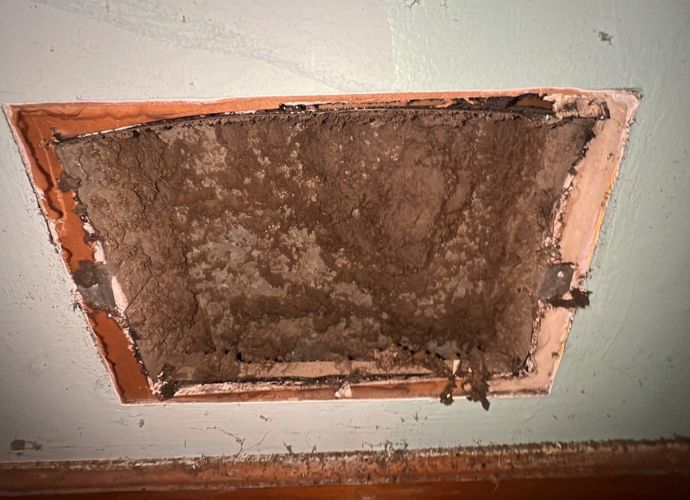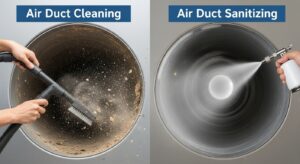Maintaining indoor air quality (IAQ) is crucial for the well-being of everyone, but it holds particular significance for individuals suffering from asthma and allergies. The air we breathe indoors can be laden with various pollutants and allergens, triggering respiratory issues and exacerbating symptoms for those already affected. In this blog, we will read through the impact of poor indoor air quality on asthma and allergies and provide practical tips to improve IAQ for a healthier living environment.
Understanding Asthma and Allergies
Before delving into the relationship between indoor air quality and respiratory conditions, let’s grasp the basics of asthma and allergies.
Asthma: Asthma is a well-known chronic respiratory condition characterized by inflammation of the airways, causing breathing-related issues like difficulty breathing, wheezing, coughing, and tightness in the chest. It affects people of all ages and can be triggered by various factors, including allergens, pollutants, cold air, and stress.
Allergies: Allergies, on the other hand, occur when the immune system overreacts to harmless substances (allergens) such as pollen, pet dander, mold spores, dust mites, and certain foods. In extreme cases, allergic reactions can range from mild sneezing and skin rashes to severe anaphylaxis.
The Link Between IAQ and Asthma/Allergies
Indoor air quality has a straight impact on respiratory health. Poor IAQ can lead to the accumulation of allergens and irritants in the air, worsening asthma symptoms and triggering allergic reactions. Common indoor pollutants include:
Dust Mites: These tiny creatures thrive in hot & humid environments and are found in bedding, carpets, and upholstered furniture.
Mold: Mold spores thrive in damp areas like bathrooms and basements, releasing allergens.
Pet Dander: Pets shed tiny skin flakes that can become airborne, causing allergies in sensitive individuals.
Pollen: Pollen from outdoor sources can enter indoor spaces through open windows and on clothing.
Tobacco Smoke: Smoking indoors releases harmful chemicals and particulate matter that can severely affect respiratory health.
Volatile Organic Compounds (VOCs): VOCs are emitted by household products like paints, cleaning agents, and air fresheners and can irritate.
Maintaining Indoor Air Quality
Maintaining indoor air quality can significantly alleviate asthma and allergy symptoms. Here are some practical tips:
Regular Cleaning: Frequent dusting, vacuuming with a HEPA filter, and washing bedding in hot water help lessen allergens like dust mites and pet dander.
Control Humidity: Use dehumidifiers in damp areas to discourage mold growth, as keeping indoor humidity levels between 30-50% is recommended.
Ventilation: Proper ventilation reduces the concentration of indoor pollutants. Open windows and use exhaust fans in kitchens and bathrooms to promote air circulation.
Air Purifiers: Consider investing in HEPA air purifiers that can effectively capture allergens and pollutants from the air.
No Smoking Zone: Enforce a strict no-smoking policy indoors to keep harmful tobacco smoke away.
Green Cleaning Products: Opt for eco-friendly and non-toxic cleaning agents to minimize VOC emissions.
Indoor Plants: Certain houseplants can help purify the air by absorbing pollutants and releasing oxygen.
How Can a Professional Air Duct Cleaning Company in New Jersey Help?
A professional air duct cleaning company can improve indoor air quality (IAQ) by employing specialized knowledge, equipment, and techniques to address and eliminate various pollutants and contaminants. Here are some ways in which they can be of great assistance:
Comprehensive IAQ Assessment: Professional air cleaning companies conduct thorough indoor air quality assessments to identify specific pollutants and allergens in your indoor environment.
Customized Solutions: Based on the assessment results, they develop tailored solutions to address the unique IAQ challenges in your space. Each building and its occupants have different needs, and professional companies can create personalized strategies to improve air quality effectively.
Air Duct Cleaning: With time, air ducts can accumulate dust, debris, and mold, which can circulate through the HVAC system and compromise IAQ. Professional air cleaning companies offer thorough air duct cleaning services to remove these contaminants and improve the overall cleanliness of the air circulating indoors.
Read More: How Mold Has Become a Pervasive Issue for Homeowners – Causes, Consequences, and Solutions
Conclusion
Indoor air quality plays a pivotal role in managing asthma and allergies. Individuals can create a healthier living environment and enjoy improved respiratory health by taking proactive measures to reduce indoor pollutants and allergens. Regular cleaning, proper ventilation, air purifiers, and other practical steps can significantly enhance IAQ and promote overall well-being for everyone, especially those with asthma and allergies.
Breathe easier today! Experience the difference between cleaner indoor air. Contact Alpha Clean Air now to schedule an IAQ assessment and discover how our air-cleaning solutions can alleviate asthma and allergy symptoms. Call us at 862-500-3828 and book an appointment now.





